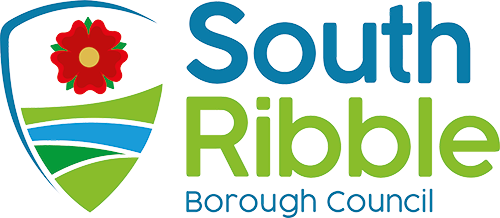Flooding
Lancashire County Council is the Lead Local Flood Authority and can be contacted on 0300 123 6780.
If you are in immediate danger due to extreme weather, please call emergency services on 999.
Be Prepared
Around 5.2 million people in England and Wales (about one in six properties) is at risk from flooding, yet more than half of those at significant risk of flooding are not aware of this. Are you prepared?
Watch this useful video made by our friends at Lancashire County Council (local lead flood authority) for advice and tips on what to do before, during and after a flood.
What else can I do to prepare?
There are things you can do to reduce the impact of flooding and preparing in advance will help you keep calm during a stressful situation. It is important to remember that the council may not be able to respond to requests from residents or reach properties before flooding occurs.
Get home insurance
Make sure you have the correct home insurance cover in case your property floods. The cost of recovery after a flood is on average £20,000. If you are unsure you can obtain advice from the National Flood Forum
Make a flood plan
Don't wait until it happens - you might not have time. See the Environment Agency's advice on how to create a personal flood plan
Prepare a flood kit
Put together a kit of essential items you would need to take with you if you had to evacuate your home including important documents, medication, and mobile phone.
Sandbags
Generally, sandbags are of limited value unless used in conjunction with plastic sheeting.
The council does not provide sandbags but you can buy them from your local DIY store and keep them in a shed or garage in case of an emergency.
Flood protection products
If you live in a high risk area or near a water course, you may want to consider investing in additional flood protection measures. The National Flood Forum has produced an independent directory of flood protection products and services called the Blue Pages. Alternately, you can call the National Flood Forum on 01299 403055.
Keep your drains and grids clear
Removing leaves and debris that are covering the top of your grids will help prevent blockages which could cause localised flooding in heavy rainfall.
Emergency contacts
Lancashire Police
Call 999 if there is an immediate risk to life call the police. Use 101 if it is not an emergency.
Environment Agency Floodline
0345 988 1188 to report a flood or if your property is at risk of flooding from a reservoir, river or coastal water.
United Utilities
0345 6723 723 if flooding is from sewers or burst water mains.
Lancashire County Council
0300 123 6780 if flooding is from highway drainage, surface water, groundwater or watercourses.
0300 123 6780 for advice on local rest centres, road closures and vulnerable people.
Power cuts
Call 105 to report a power cut or get updates when your electricity has been cut off.
Advice on what to do in a power cut.
You can find more flooding advice from Electricity Northwest and their priority services register for customers who may need extra support during a power cut.
South Ribble Borough Council emergency contact number
We will do everything we reasonably can to assist the above organisations and respond to requests for help from affected residents, although our resources are limited and we would have to prioritise.
Call us on 01772 625 625 Monday to Thursday 8.30am to 5.15pm and 8.30am to 4.45pm on Fridays or out of hours on 01772 625 499.
Within South Ribble, the Environment Agency has identified seven areas where properties and businesses might be at risk of flooding from the Rivers Ribble, Darwen and Lostock. These are:
- River Darwen at Higher Walton
- River Ribble at Walton-Le-Dale
- River Ribble at Salmesbury
- Ribble Estuary Tidal Breach at Hutton & Longton (Hutton Marsh)
- Ribble Estuary at Lower Penwortham
- Lostock and Yarrow Catchment
- Leyland Flash Flood Area (limited warnings available)
Flood Warnings and what they mean

What it means
Flooding is possible. Be prepared
When it's used
Two hours to two days in advance of flooding
What to do
- Prepare a flood kit of essential items
- Monitor local water levels and the flood forecast on the Environment Agency website or by calling 0845 988 1188

What it means
Flooding is expected. Immediate action required
When it's used
Half an hour to one day in advance of flooding
What to do
- Move family, pets and valuables to a safe place
- Turn off gas, electricity and water supplies if safe to do so
- Put flood protection equipment in place

What it means
Severe flooding. Danger to life.
When it's used
When flooding poses a significant threat to life
What to do
- Stay in a safe place with a means of escape
- Be ready should you need to evacuate your home
- Co-operate with the emergency services
- Call 999 if you are in immediate danger
The Flood Hub
The Flood Hub has been designed to be a one stop shop for flood information and resources to support householders, businesses and communities across the North West in becoming more flood resilient. Multiple sources of guidance have been centralised in one place to produce a hub of information that gives an overview of flood resilience and it's many related topics.
The website also contains information on the Lancashire Partnership and upcoming events for residents to attend including information on flood risk management schemes for areas within Lancashire.
Useful Links
- Lancashire County Council
- Flood advisory service
- Register for flood alerts
- Preparing for flooding
- Home flood insurance
- United Utilities get 'winter wise'
- Sewer flooding
- Twitter - follow the hashtags #LancsAlert and #FloodAware
- Flood Hub




